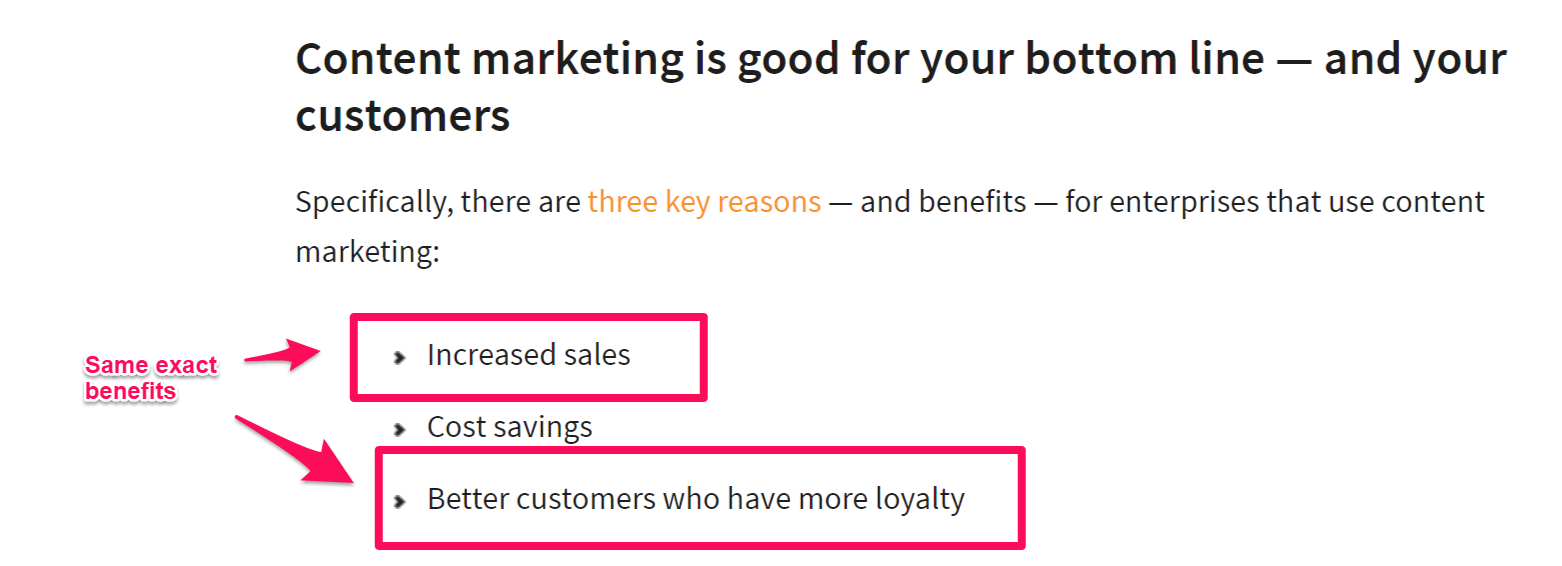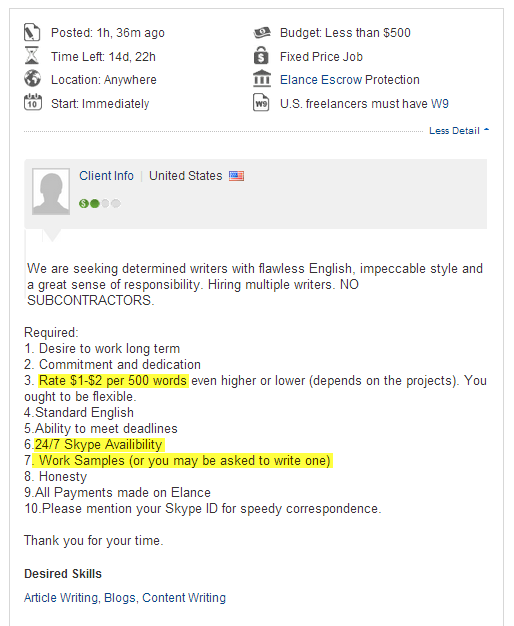
Every freelancer starts in the exact same place:
Job boards.
It's the lowest of low-hanging fruit. The easiest place to get started, picking up a few jobs when no one, nowhere, knows who you are or what you do.
But there's a problem.
Stick with them too long, and you risk jeopardizing your freelancing future.
Here's why, and what to do instead.
The Unintended Consequences of Sticking with Job Boards Too Long
Job boards aren't inherently bad. They're just like content mills in that sense: good or bad depending on a few scenarios.
Yes, you can almost always find a steady stream of work through them. But yes, they're going to be among the least paying options out there. And yes, you're going to be competing against dozens (if not hundreds) of others for the same low pay or unrealistically-short turnarounds (or both).
Trust me: my company has vetted over 2,500 in the last year alone through this method.
The problem is that the best clients -- the ones who are the easiest to work with and willing to pay the most -- don't use job boards. They're looking for name brand writers who've proven their ability time and time again.
And they're paying for an end result from your writing, not just words. So they're willing to pay thousands, not cents.
Best case scenario, job boards completely max out your capacity. But that's also a problem.
Because when you're "too busy," barely able to keep up, you start cutting corners. Like, regurgitating what's already out there. Or straight ripping them off.
Again, I've unfortunately learned this lesson the hard way. We paid for content from five popular content writing services and found that three of them plagiarized material.
It wasn't always obvious, either. For example, notice the two big benefits on this piece we received from one of the writers?
Now, check out this piece from Content Marketing Institute that ranked #1 in Google for the same topic:

Yikes. The same exact points. Basically regurgitated.
Needless to say, this 'busy' writer lost our future work. And is going to be left scrambling again for more.
How to Wean Yourself Off the Job Board Hamster Wheel Once and For All
Yes, you should use job boards or content mills when you need them. But no, you shouldn't rely on them forever.
Here are four things you should be doing, instead of being "constantly busy" with job board work:
1. Build a brand
The writers who charge the most, are known to the most. I'm not saying that's right. But it's how it is. If people don't know you by name and reputation, they can't go searching for you by name or reputation.
2. Specialize
The highest-paid writers aren't jack-of-all-trades. They're subject-matter experts who know their stuff inside and out. The more you specialize in a particular field, work with more high-profile clients in that field, and promote yourself in that field, the more inbound requests and referrals you'll get, too.
3. Build out processes
Raising your rates is the easiest way to make more money. But if you can produce more, faster (through better processes that allow for contractors or assistants), AND raise rates, you'll double or triple your income virtually overnight.
4. Lock-down recurring revenue
One-off, project-based work can deliver a nice cash influx. But it's a mirage, because you'll be slammed one minute, unable to work on those first two things, and it's gone when it's done. Instead, prioritize long-term, recurring revenue so that you're never completely left with a dry period.
Job boards don't always have to suck. You can and should use them as a springboard to better stuff in the future. The key is to be more picky in how you select a 'good' fit.
Here are some of the clues to look for, based on a random job board ad I just found. (Check it out here.)
First and foremost? Check out that title. It's a thing of beauty.

"Recurring Work" + "experienced" + "marketing niche." Check, check, and check.
Next up, look for scope and timeline details. In this case, they're looking for A TON of work. That might mean they're going to try a few writers before selecting one for the long-haul. That's OK, as long as you're getting paid for those initial tests.
They also (a) know what they want, and (b) provide samples or benchmarks for what they're looking for. Both good signs that they've done this before, and don't have crazy expectations.

Two more clues make this one a decent bet.
First, the "at least 6 months" part. Long-term, recurring work = good.
However, the "ghostwriting" part = bad. Doing it in the short term is OK. But if they won't let you reference the work to new clients in the future, it's not going to help you much.
This example is a good, pay-the-bills client. Tons of work, realistic expectations, interested in someone who knows what they're talking about (i.e. not the cheapest beginner available).
If you need the money, you should definitely reach out to this example. But don't get too comfortable. Don't get too busy.
Use the revenue you're getting here to cover your bills while you write spec posts for free and pitch them to big sites. Build up your reputation and brand in the background, so that 6-12 months from now, you'll never have to rely on another job board ad again.
Conclusion
Job boards exist for a reason. A very good reason. They make it easy for both writers and the people trying to hire writers to find each other.
Use them in the beginning. Use them when work is slow.
But don't use them day-in, day-out, forever. Don't rely on them forever.
Because you'll get stuck doing the 'busy' stuff, instead of focusing on the profitable stuff.





